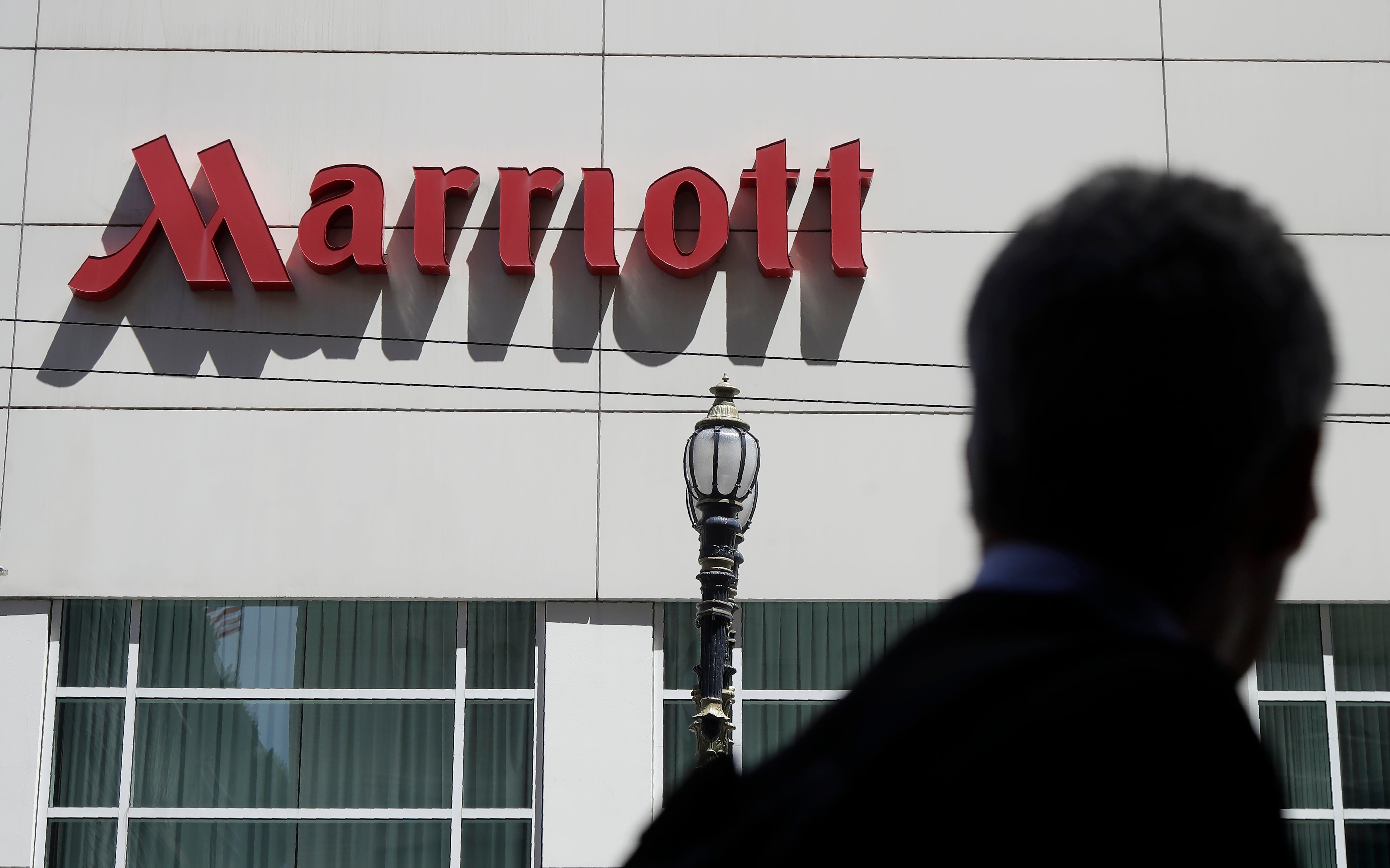Marriott agrees to pay $52 million, beef up data security to resolve probes over data breaches
Marriott International has agreed to pay $52 million and make changes to bolster its data security

Your support helps us to tell the story
From reproductive rights to climate change to Big Tech, The Independent is on the ground when the story is developing. Whether it's investigating the financials of Elon Musk's pro-Trump PAC or producing our latest documentary, 'The A Word', which shines a light on the American women fighting for reproductive rights, we know how important it is to parse out the facts from the messaging.
At such a critical moment in US history, we need reporters on the ground. Your donation allows us to keep sending journalists to speak to both sides of the story.
The Independent is trusted by Americans across the entire political spectrum. And unlike many other quality news outlets, we choose not to lock Americans out of our reporting and analysis with paywalls. We believe quality journalism should be available to everyone, paid for by those who can afford it.
Your support makes all the difference.Marriott International has agreed to pay $52 million and make changes to bolster its data security to resolve state and federal claims related to major data breaches that affected more than 300 million of its customers worldwide.
The Federal Trade Commission and a group of attorneys general from 49 states and the District of Columbia announced the terms of separate settlements with Marriott on Wednesday. The FTC and the states ran parallel investigations into three data breaches, which took place between 2014 and 2020.
As a result of the data breaches, “malicious actors” obtained the passport information, payment card numbers, loyalty numbers, dates of birth, email addresses and/or personal information from hundreds of millions of consumers, according to the FTC’s proposed complaint.
The FTC claimed that Marriott and subsidiary Starwood Hotels & Resorts Worldwide’s poor data security practices led to the breaches.
Specifically, the agency alleged that the hotel operator failed to secure its computer system with appropriate password controls, network monitoring or other practices to safeguard data.
As part of its proposed settlement with the FTC, Marriott agreed to “implement a robust information security program” and provide all of its U.S. customers with a way to request that any personal information associated with their email address or loyalty rewards account number be deleted.
Marriott also settled similar claims brought by the group of attorneys general. In addition to agreeing to strengthen its data security practices, the hotel operator also will pay $52 million penalty to be split by the states.
In a statement on its website Wednesday, Bethesda, Maryland-based Marriott noted that it made no admission of liability as part of its agreements with the FTC and states. It also said it has already put in place data privacy and information security enhancements.
In early 2020, Marriott noticed that an unexpected amount of guest information was accessed using login credentials of two employees at a franchised property. At the time, the company estimated that the personal data of about 5.2. million guests worldwide might have been affected.
In November 2018, Marriott announced a massive data breach in which hackers accessed information on as many as 383 million guests. In that case, Marriott said unencrypted passport numbers for at least 5.25 million guests were accessed, as well as credit card information for 8.6 million guests. The affected hotel brands were operated by Starwood before it was acquired by Marriott in 2016.
The FBI led the investigation of that data theft, and investigators suspected the hackers were working on behalf of the Chinese Ministry of State Security, the rough equivalent of the CIA.